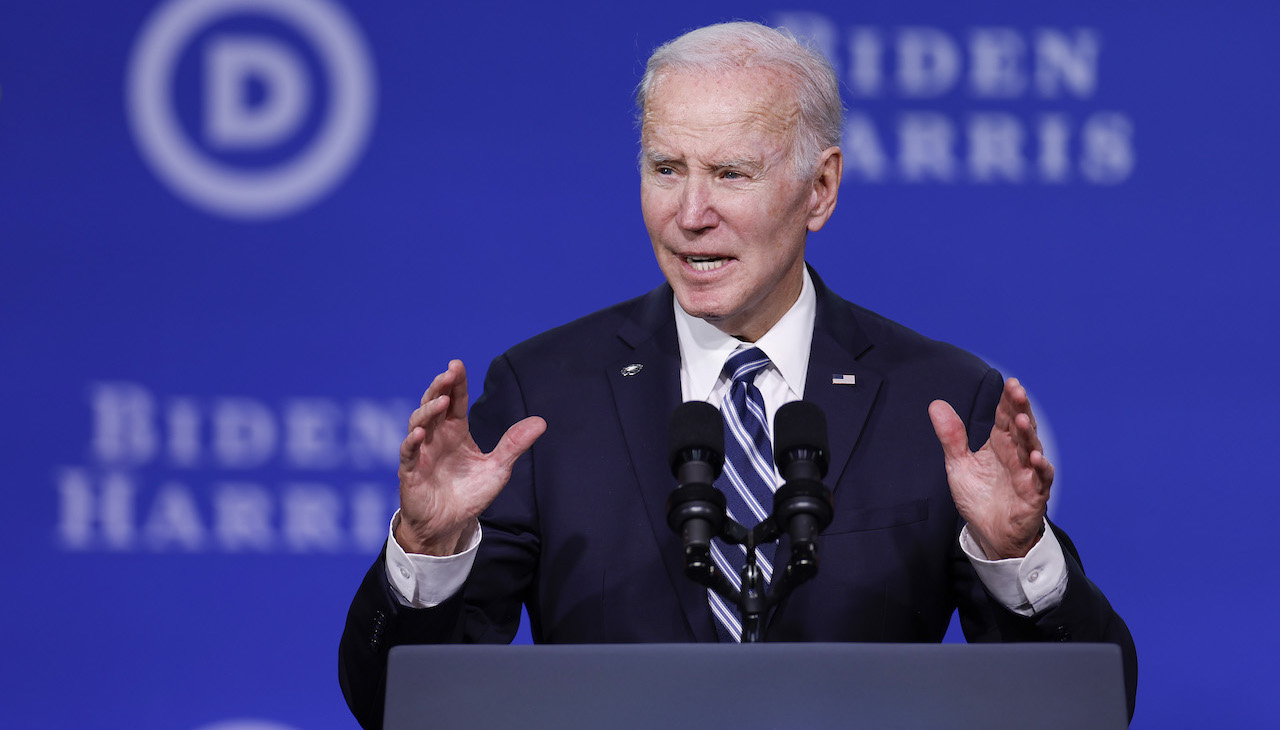
Biden’s in Philadelphia this Thursday to talk his budget, cutting the federal deficit, and protecting medicare, among other provisions
The POTUS’ address and proposal is a long-term agenda that hints at Biden’s speculated but expected re-election announcement.
President Joe Biden will be visiting Philadelphia this Thursday, March 9 to deliver his budget proposal, the White House announced late Sunday night, March 5.
Biden will be visiting a union hall in Northeast Philly where he plans to outline his proposals that “invest in America” and contribute to POTUS’ campaign promises of cutting costs for families, protecting and expanding Medicare, strengthening Social Security, and cutting the federal deficit by roughly $2 trillion over the next decade.
This is one of many visits Biden has made to the city throughout his presidency, where he holds personal and political ties, and is the hometown of the First Lady Jill Biden. There is also an expected announcement from Biden to run again in 2024.
Protecting Medicare in particular is an issue personal to Biden who on Tues., Mar. 7 published an Opinion Guest Essay in the New York Times — “My Plan to Extend Medicare for Another Generation” — outlining policy proposals to protect Medicare and calling out Republicans who have looked to cut benefits.
“For decades, I’ve listened to my Republican friends claim that the only way to be serious about preserving Medicare is to cut benefits, including by making it a voucher program worth less and less every year,” said Biden. “Some have threatened our economy unless I agree to benefit cuts.”
“Only in Washington can people claim that they are saving something by destroying it,” he added.
Biden said his budget “will make the Medicare trust fund solvent beyond 2050 without cutting a penny in benefits,” adding “we can get better value, making sure Americans receive better care for the money they pay into Medicare.”
In the essay, Biden claims his budget would build on drug price reforms by bolstering Medicare’s negotiating power, allowing Medicare to negotiate prices for more drugs and bringing said drugs into negotiation soon after launching.
He said that will amount to $200 billion in deficit reduction, with the savings to be put directly into the Medicare trust fund. This would lower drug prices while also expanding Medicare’s solvency.
The President is also asking the rich to contribute more in taxes to strengthen Medicare for all over a period of time. The proposal also calls to increase the Medicare tax rate on earned and unearned income above $400,000 to 5% from 3.8%.
“When Medicare was passed, the wealthiest 1% of Americans didn’t have more than five times the wealth of the bottom 50% combined, and it only makes sense that some adjustments be made to reflect that reality today,” Biden wrote in his essay.
Biden said this would also ensure that the tax that supports Medicare could not be avoided and that small increases will help keep the program functioning for decades. The budget would ensure that the money goes directly into the Medicare trust fund.
The White House is counting on spending cuts by Republicans being unpopular that enough GOP Congressmembers will abandon demands for Congress to raise the debt limit.
RELATED CONTENT
"Will they cut Social Security and Medicare? The Affordable Care Act?" Shalanda Young, director of the White House's Office of Management and Budget, said as she previewed Biden's broad budget goals. "We don't know until we see a plan. They owe that to the American people."
However, administration officials say that the budget as proposed for Thursday’s delivery would not likely pass through the Republican-controlled Congress.
But the specific proposals Biden says would extend the life of the Medicare trust fund for “more than another generation, an additional 25 years or more of solvency — beyond 2050,” he said.
“These are common-sense changes that I’m confident an overwhelming majority of Americans support,” he added.
Along with protecting Medicare, Biden will be announcing another set of policies aimed at cutting federal budget deficits by at least $2 trillion over the next decade. The Biden Administration is entering a fight over debt reduction, right after recently fighting with Republicans regarding raising the U.S.’s borrowing limit.
The U.S. Government has spent more money than they receive in tax revenue every year since 2000. It dramatically increased under former President Donald Trump due to the pandemic and subsequent recession.
It made Congress approve trillions of dollars in relief for individuals, businesses and state and local governments. It steadied after Biden signed his $1.9 trillion economic aid package soon after taking office, and declined last year.
The nonpartisan Congressional Budget Office has estimated that the deficit will grow this fiscal year, from $1.41 trillion to $1.375 trillion, but will increase over the course of the decade, with $2 trillion expected in 2032.
Biden’s expected rejected proposals would reduce the deficit by 15%, but Senate Minority Leader Mitch McConnell said Tuesday that the plan “will not see the light of day.”
“This week, I’ll show Americans my full budget vision to invest in America, lower costs, grow the economy and not raise taxes on anyone making under $400,000. I urge my Republican friends in Congress to do the same — and show the American people what they value,” Biden said.










LEAVE A COMMENT: